23 calories (1/3 of recipe); 0.4 g protein; 0.1 g fat; 7.7 g carbohydrate; 3.7 g net carbs; 58 mg sodium; 0 mg cholesterol; 1.3 g fiber
17 calories (1/4 of recipe); 0.3 g protein; 0.1 g fat; 5.8 g carbohydrate; 2.8 g net carbs; 44 mg sodium; 0 mg cholesterol; 1.0 g fiber
<Ingredients>
4-5 cm (170-200 g) daikon radish (190 g in photo)
0.4 g salt (to sprinkle on daikon; not in photo)
3 kinkan kumquats (28 g in photo)
For amazu sweetened vinegar
2 tbsp rice vinegar
1 tbsp water
2 tsp erythritol
2 drops liquid stevia
1/4 tsp shiokoji salted rice malt
<Directions>
1.
Skin daikon as necessary (remove blemished parts; no need to skin if fresh and crisp), slice, and julienne.
Sprinkle salt, gently mix, and let sit for 30 minutes until water comes out.
2.
In the meantime, mix all ingredients for amazu sweetened vinegar, and heat to dissolve erythritol (sugar).
Once dissolved, remove from heat and cool.
3.
Slice kinkan kumquats.
4.
Squeeze out excess water from daikon, place in amazu, and mix well.
5.
Add kinkan, and gently mix.
Refrigerate for half a day or overnight.
Turn once of twice while marinating for even flavoring.
(7 hours later.)
<Notes>
- Keep in fridge for a few days.
- When not cooked, daikon tastes spicier toward the tip. If you prefer a milder taste, use the middle or upper section near stems. (However, the spiciness of daikon disappears by Day 3, even when you use the lower section for this dish.)
- Amazu sweetened vinegar can be heated on the stove top or in microwave, depending on your container and preference.
- Everything for amazu can simply be mixed, but heating it up ensures a well-blended, milder marinade.
- When more salt is used to draw out water from daikon, water comes out more quickly but daikon absorbs more sodium. 0.4 g salt is about 1/8 tsp kosher salt (much less for other types of salt). My pinch of (kosher) salt weighs 0.1 g.
- Erythritol and stevia are substitutes for granulated sugar. When using granulated sugar, the above figures for calories and net carbs would be: 33 calories and 6.4 g net carbs for 1/3 of recipe; and 25 calories and 4.8 g net carbs for 1/4 of recipe. The other numbers are the same as above.
- Namasu is a general term for dishes made of raw, sliced seafood or vegetables (and fruit) pickled in rice or grain vinegar-based marinade. It is a type of sunomono [lit. vinegar items/dishes].
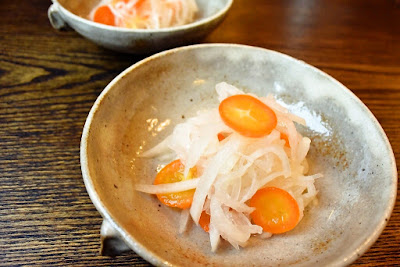
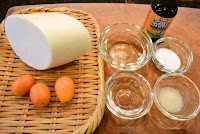
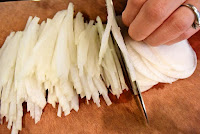
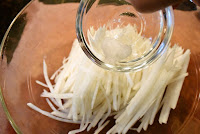
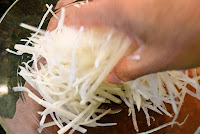
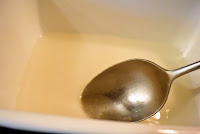
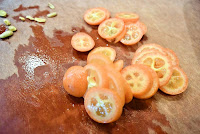
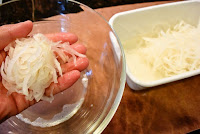
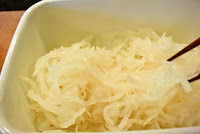
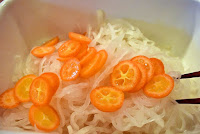
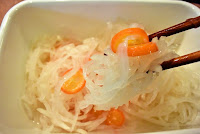
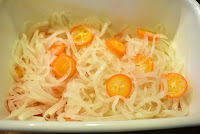
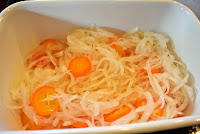
No comments:
Post a Comment